#deontological
Explore tagged Tumblr posts
Text
deontološka etika
ili nit za koju sam se zakačila na svojim predavanjima iz bioetike: prema deontološkoj etici, ličnost/persona nije nešto što nam je dato već nešto što nam je zadato stoga međusobno potvrđujemo slobode - tako se naše ličnosti razvijaju.
#etika#ethics#bioethics#persona#personality#university#uni lecture#deontological#deontological ethics#philosophy#filozofija#psychology#psihologija#food for thought#words#reči#tekst#freedoom#autonomy#individual#people#society#culture#study
4 notes
·
View notes
Text
#mdzs#jin guangyao#nie mingjue#lan xichen#jiang cheng#xue yang#yanyan polls#“i'm sorry da-ge maybe i just don't find deontology to be a particularly convincing moral philosophy”#“i'm sorry er-ge but i don't have the time to read homestuck”#“i'm sorry sect leader jiang do i look like a fucking miracle worker to you”#also. jin guangshan slipping and nearly falling down the stairs is a net good yes#but imo the disappointment and shattered hopes from him not actually falling down the stairs is more painful
150 notes
·
View notes
Text

An experimental piece with Carcharodons.
#[art]#warhammer 40000#wh40k art#adeptus astartes#warhammer 40k#carcharodons#carcharodon astra#tyberos the red wake#deontological ethics#experimental
131 notes
·
View notes
Text
Might not shoot a person but kill an ant; is the value of life determined by the size of the body or human-centric understandings of social contributions or responsibilities?
#Ethics#Philosophy#Anthropocentrism#Humanism#Speciesism#Value of Life#Bioethics#Moral Philosophy#Social Contributions#Responsibility#Animal Rights#Ecology#Existentialism#Environmental Ethics#Empathy#Sentience#Non-Human Life#Consciousness#Moral Dilemmas#Interspecies Ethics#Utilitarianism#Deontology#Justice#Life Philosophy#Social Constructs#Cultural Norms#Moral Relativism#Equality#Moral Psychology#Human Exceptionalism
34 notes
·
View notes
Text
As far as they can
At the end of the Job minisode, Crowley inaugurates Their Side by proclaiming Aziraphale "an angel who goes along with Heaven... as far as he can," parallel to his own stated relationship with Hell.
Only it... doesn't actually work that way. Their exactlies are different exactlies.
Crowley defies and lies to Hell as often as he thinks he can get away with it. He never disabuses Downstairs of their misconceptions about his contributions to human atrocities. He cheerfully lies in his reports Downstairs, something Aziraphale briefly turns on his Baritone of Sarcastic Disapproval about in s1. Crowley even turns evil homeopathic in the latter part of the 20th century, likely in hopes that it will look good to head office while accomplishing essentially nothing. (This, of course, is another way he Crowleys himself, both with the London phone system and the M25.) After Eden, Crowley's default given an assignment from Hell is to see how he can subvert it.
Aziraphale, on the other hand, defies Her and Heaven as little as he possibly can. Sometimes, as with his sword giveaway, his compassion gets the better of his anxiety. Sometimes, as with Job's children in the destruction of the villa, he can try to stay within the letter of the law by leaving the defiance to Crowley.
His default, however, is "'m 'nangel. I can't dis- diso -- not do what 'm told." This comes out most often as respect for the Great/Divine Plan, which to him is sacrosanct. He sounds quite sincere in s1 when he says "Even if I wanted to help I couldn’t. I can’t interfere with the Divine Plan."
Aziraphale quite frequently Good Angels along by parroting Heaven's party line, whether it's "it'll all be rather lovely" or "I am good, you (I'm afraid) are evil" or droning on about evil containing the seeds of its own destruction, or condemning Elspeth's graverobbing as "wicked" (a stance he offers absolutely no reasoned support for, no logic, no "but She said," not a word -- that's very Heaven; most of Heaven's angels have the approximate brainpower of paramecia). Maestro Michael Sheen even has a particular voice cadence -- I think of it as Sententious Voice -- he uses when Aziraphale is thoughtlessly party-lining.
When the angel's conscience wars with his sense of Heaven's orthodoxy but (and this is an important but) he can't feasibly resist whatever's wrong, he offers strengthless party-line justifications he clearly doesn't agree with (as with the "rain bow" in Mesopotamia) or resorts to a Nuremberg defense: "I'm not consulted on policy decisions, Crowley!" Once or twice, he's even vocally aware of Heavenly hypocrisy: "Unless… [guns]'re in the right hands, where they give weight to a moral argument… I think." This isn't Sententious Voice. It's I-can't-disobey-and-I-hate-that voice.
But at base, the angel prefers obedience (not least because it's vastly safer), and he'd rather have someone else do his moral reasoning for him. Honestly? Pretty relatable. I know lots of people like this -- hell's bells, I've been this person, though I grew out of it somewhat -- and I daresay you do too. Moral reasoning is hard and often lonely (since it can be read as self-righteousness or even hypocrisy) and acting as it dictates can hurt. Nobody would need ethics codes if The Right Thing was also invariably The Convenient Thing.
Many GO fans find these Aziraphalean traits frustrating! Especially his repeated returns to parroting Heaven orthodoxy! Sometimes I do too! (Not least because I'm rather protective of my own integrity, and it's cost me quite a few times. I'm well-known in professional circles for picking up a rhetorical spear and tilting at the nearest iniquitous windmill. I often lose, but I sure do keep tilting. Every once in a blue moon I actually win one.)
The key, I think, to giving our angel a little grace on this (beyond honoring the gentle compassion that is pretty basic to his character) is noticing how often he can be induced to abandon an unconsidered Heavenish default stance. As irritating as his default is, and as consistently as he returns to it, it's not really that hard to talk him out of it. Crowley, of course, is tremendously good at knocking Aziraphale away from his default -- he's had to be. But Aziraphale even manages to talk himself away from his default once, in the form of the Ineffable Plan hairsplitting at the airbase!
I think the character-relevant point of the Resurrectionist minisode is making this breaking-the-Heavenish-default dynamic as clear as the contents of the pickled-herring barrel aren't. "That's lunatic!" Crowley exclaims, when Aziraphale Sententious Voicedly parrots Heaven's garbage about poverty providing extra opportunities for goodness. Aziraphale isn't quite ready to let go yet, replying "It's ineffable."
But Dalrymple (who, I think, parallels Heaven, perhaps even the Metatron -- there could be something decent there, but it's buried too deep under scorn and clueless privilege for any graverobber-of-souls to dig it out) manages to break Aziraphale's orthodoxy by explaining the child's tumor.
Once released from his orthodoxy, Aziraphale can't be trusted to handle moral reasoning well; his moral-reasoning ability is not-uncommonly (though not always) portrayed as vitiated. When he gives Elspeth the go-ahead to dig up more bodies, his excuses are just as vacuous as they were when he was convinced of her wickedness. He knows that he's crossed Heaven's line, too, and just as at Eden it's worrying him. That's why he has to talk to Crowley to nerve himself up to help Wee Morag... only he spends too much time talking, and it's too late.
But Crowley can then talk him into bankrolling Elspeth toward a better life. Aziraphale doesn't even put up any fight, both because he's compassionate and because Crowley is temporarily taking the place of Heaven (he's even Heaven-sized and staring down at them!) as the angel's moral compass.
S1 has an even worse example of Aziraphale's moral wavering, actually. Crowley yells "Shoot him, Aziraphale!" and Aziraphale sure does try to murder Adam. Again, he's adopting his morals from the nearest (and loudest) convenient source. Madame Tracy, thankfully, has enough of a moral backbone to save our angel from himself and Crowley.
(With my ersatz-ethicist hat on: this is a fight between utilitarianism and deontology. Crowley is the utilitarian, which is actually a bit of a departure for him, but he's admittedly desperate. Madame Tracy is the deontologist: One Doesn't Kill Children. Aziraphale is caught in the middle.)
I wouldn't be surprised if part of the reason we start s3 with Aziraphale and Crowley separated is so that Aziraphale finally has to do his own moral reasoning, without Crowley's nudges. I don't think it'll be easy for him. It will absolutely be lonely. And it may well hurt.
But I will watch for it, because it's how he will become his own angel, independent of Heaven and even of Crowley. And he must do that.
#good omens#good omens meta#aziraphale#the resurrectionists#good omens s3#s3 speculation#ethics#deontology#utilitarianism
179 notes
·
View notes
Text
Bottom line is, the Doctor not drawing the line beyond which they just won't abide by the Master would be just as boring as the Master getting neutered out of their villain role.
What also would be boring, and in fact already was, is the Doctor just bloody knowing where that line is instead of needing it constantly pointed out by companions or, even more interestingly, the Master themself.
#yeah this is about twelve's deontological ethics and moffat's love hate relationship with organised religion#and thirteen just. being an immaculately conceived sinless child actually uwu#dw meta#doctor who#thoschei#the doctor#the master
23 notes
·
View notes
Text
RIP Emmanuel Kant
You would’ve loved Chase Rescue Bots
#transformers#transformers rescue bots#chase rescue bots#emmanuel kant#philosophy#they both subscribe to deontological ideology#also they both have a mostly absolutist viewpoint#i mean this with 100% sincerity
13 notes
·
View notes
Text
Deontology and Divine Command Ethic suck. Become a Virtue Ethicist instead
-Jesus of Nazareth, probably
#my hot take is the both deontology and dc suck#and that the sermon on the mount is pure unadulterated virtue ethics#(good or bad ethics is up for debate ig but y’all know my position)#and then because im anti-marcionite I would argue that all of scripture is virtue ethics#and that adam and chava failed because they wanted to cheat instead of cultivating an ethic of virtuous living according to god’s wisdom
5 notes
·
View notes
Text
“this sucks im gonna—” suddenly remembers that suicide can not be universalized without exception, and treats my humanity as a means rather than an end in itself “—act in accordance with the moral law”
5 notes
·
View notes
Text
The Philosophy of Duty
The philosophy of duty, often referred to as "deontology," explores the nature and basis of moral obligations and the principles that define actions as morally required or prohibited. In this framework, duty represents an ethical imperative to act in accordance with certain principles or rules, regardless of personal desires or outcomes.
Key Aspects of the Philosophy of Duty
Moral Obligation: Duty is often seen as an inherent moral obligation that individuals must follow to act ethically. Unlike approaches that focus on outcomes or character, duty-based ethics focus on adherence to rules or principles as the basis for moral action.
Deontological Ethics: Immanuel Kant is a major figure in duty-based ethics. He argued that moral laws are categorical imperatives, meaning they apply universally and unconditionally. According to Kant, actions should be performed out of respect for moral law, not based on their consequences.
Intention and Autonomy: In duty-based ethics, an individual’s intention is crucial. Doing something because it is one’s duty reflects moral autonomy, as opposed to being driven by external forces, emotions, or self-interest.
Universality: Deontology emphasizes the idea that duty is universal. Kant’s categorical imperative holds that one should act only according to maxims that can be universally applied, meaning actions should be considered acceptable if everyone were to act in the same way.
Rights and Justice: Duty-based philosophies often emphasize individual rights and justice. Duties define what actions we owe to others, and by respecting duties, we uphold justice, treating others with fairness and respect.
Conflicting Duties: One challenge in duty-based ethics is resolving conflicts between duties. For example, one may face a conflict between the duty to tell the truth and the duty to protect another person’s wellbeing. Different approaches to duty provide various solutions, sometimes allowing for exceptions, or ranking duties in order of importance.
Beyond Self-Interest: The philosophy of duty implies a transcendence of self-interest, prioritizing actions that benefit others or society, even at personal cost. Duty-based ethics emphasizes that one’s duty is to do what is morally right, even when it may conflict with personal desires or interests.
Duty in Different Philosophical and Cultural Contexts
Eastern Philosophies: In Hinduism, the concept of dharma represents duty aligned with moral, social, and cosmic laws. Similarly, Confucianism emphasizes social duty, particularly in relationships, where acting out of respect and fulfilling one’s role in society reflects virtue.
Existentialism and Duty: Existentialist thinkers challenge traditional concepts of duty by emphasizing individual freedom and choice. Jean-Paul Sartre argued that individuals must create their own values rather than conforming to pre-existing moral codes.
Modern Perspectives: Contemporary deontologists build on Kant’s ideas but often adapt them to address social justice and rights issues, such as the duty to protect human rights, environmental ethics, and global responsibility.
Duty and the Ethics of Care
While traditional duty-based ethics focuses on impartial rules, the ethics of care emphasizes duty within personal relationships, focusing on empathy, compassion, and the obligations that naturally arise in caring relationships.
The philosophy of duty invites us to act beyond immediate gain, considering what it means to act rightly and fulfill moral obligations for their own sake. In doing so, it shapes how we conceive our responsibilities to ourselves, others, and society.
#philosophy#epistemology#knowledge#learning#education#chatgpt#ethics#Philosophy of Duty#Deontological Ethics#Moral Obligation#Kantian Ethics#Categorical Imperative#Moral Philosophy#Ethics of Care#Moral Autonomy#Duty and Responsibility#Rights and Justice
2 notes
·
View notes
Text
out of context spoilers for neverafter ep 11
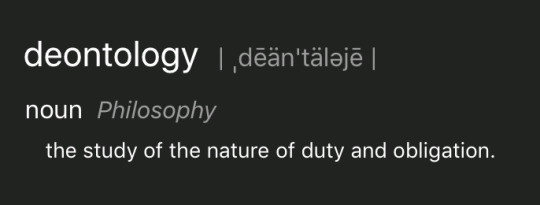



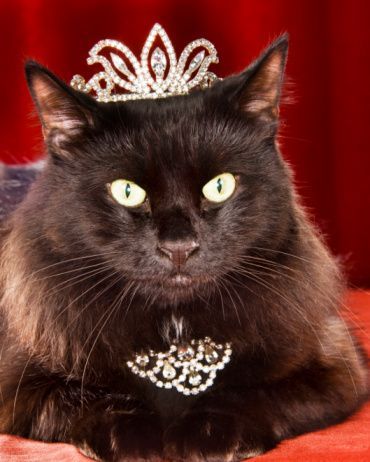


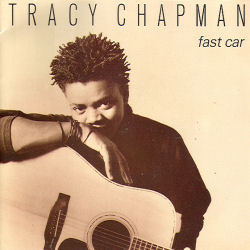

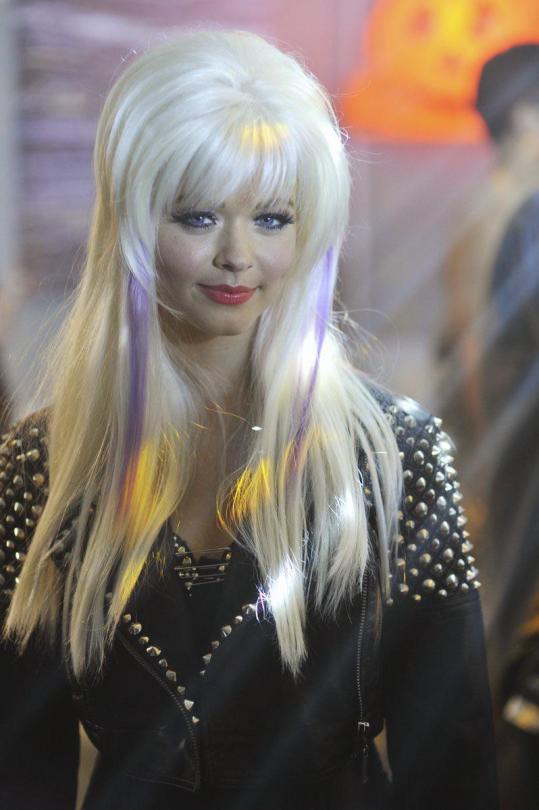




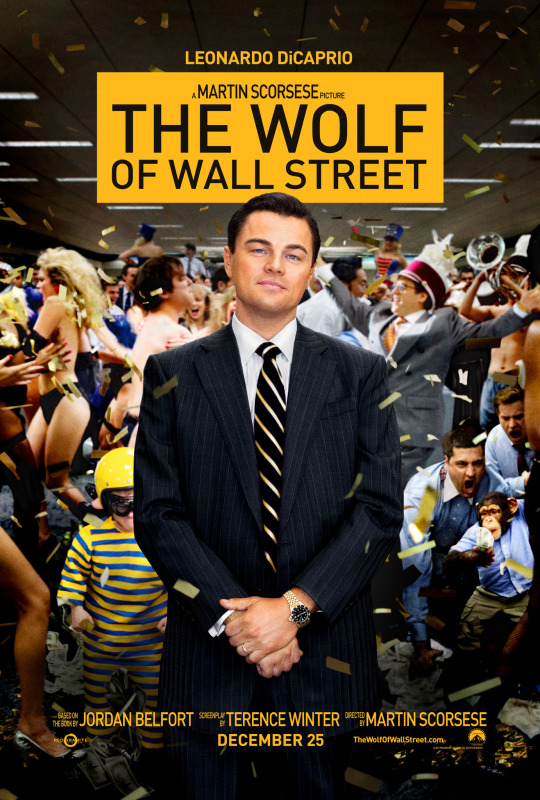
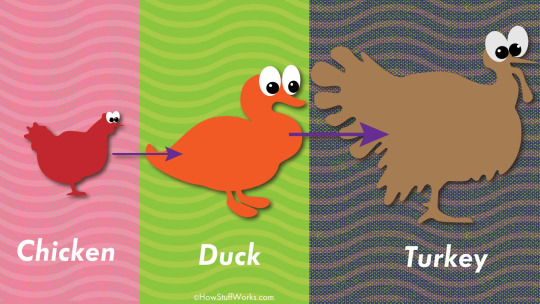
#original post#out of context#out of context spoilers#d20 spoilers#d20#dimension 20#dimension 20 spoilers#neverafter spoilers#neverafter#i was just gonna put a picture of a blonde wig#but i didnt watch a 6 hour recap of pretty little liars to NOT appreciate that disgusting wig#thank u mikes mic for bringing this image into my life#also i was going to just put one def for deontology#but it turns out deontology means different things in philosophy vs ethics#the second def is the one referenced in the ep
96 notes
·
View notes
Text
#mdzs#yanyan polls#lmao#limiting to utilitarianism and deontology for now#virtue ethics excluded bc imo the confucian ideals the cloud recesses rules are built on are already virtue ethics...idk tho
12 notes
·
View notes
Text
ttrpg designers please stop making deontology real in your fantasy settings
20 notes
·
View notes
Text
Save me f/os, save me (<- has an animal welfare and ethics exam that is 3 hours long tomorrow)
#thorn talks#animal welfare is one of my biggest strengths in knowledge so i'll probably be fine#i'm just intimidated by of the length of the exam#we got to look at the stimulus booklet beforehand (but we don't get the questions until the actual exam) for a 3 hour note taking session#since at least we get to take those notes in with us because it would be unfair to expect people#to perfectly remember the welfare needs of several animals they've never had to know the needs for#in this case it's seals‚ sea lions‚ sharks and other fish‚ penguins and amphibians#the stimulus booklet did not specify specific species so i could not put exact accomodation and husbandry information in my notes#but shout-out to the sanctuaryfederation.org marine mammals standards pdf because that was extremely useful#also found an aza penguin care manual that was good too#plus i jotted down some legislation stuff because i need to include that and the definitions of consequentialism and deontology#as a reminder to include examples of those ethical theories if i recognise an opportunity since that may also give me marks#anyway i'm rambling in an attempt to settle my nerves but back to my original point#i am also rotating f/o thoughts in my mind to ease my nerves
6 notes
·
View notes
Note
gurl you're such a fantastic writer i keep coming back to your consequentialism and deontology series it made me unwell (affectionate) <3
can i ask you what are your favorite wincest fics or authors?
hiii <3 i'm glad that you enjoyed that series.
for my favourite authors, i'm honestly terrible at choosing faves, but i think you can see the authors i reblog a lot if you follow me, and i have a tag for fic recs that you can skim through.
i would also recommend checking out my bookmarks on ao3, because i tend to bookmark things that i really enjoy or that re-write my brain chemistry.
#actually i will specifically rec: miles to go before i sleep#also if you like consequentialism and deontology then you might(?) enjoy 'wire inside me' by merle_p#but both of those are in my bookmarks on ao3 anyway#fic recs
5 notes
·
View notes
Text
I dunno I'm actually pretty wigged out about the election. Things are bad, but there's a 50/50 chance things get much, much worse. There's no good outcome here, just like "A little worse in terms of trajectory but probably a little better in terms of where things are just because the courts would get a little less openly reactionary and more time for a pro-labor NLRB to strengthen labors position in the US" and "Hey, so, you know when a right wing authoritarian who likes to try to get the support of militia groups becomes your head of state? Yeah, it's that. Also, all the shit things that are already happening, AND I, personally, as a transgender educator, gets to be targetted by the state", and it's a coinflip whether I live in the timeline where my government supports a genocide or whether my government supports a genocide AND turns militia groups on me personally.
Love this coinflip!
2 notes
·
View notes